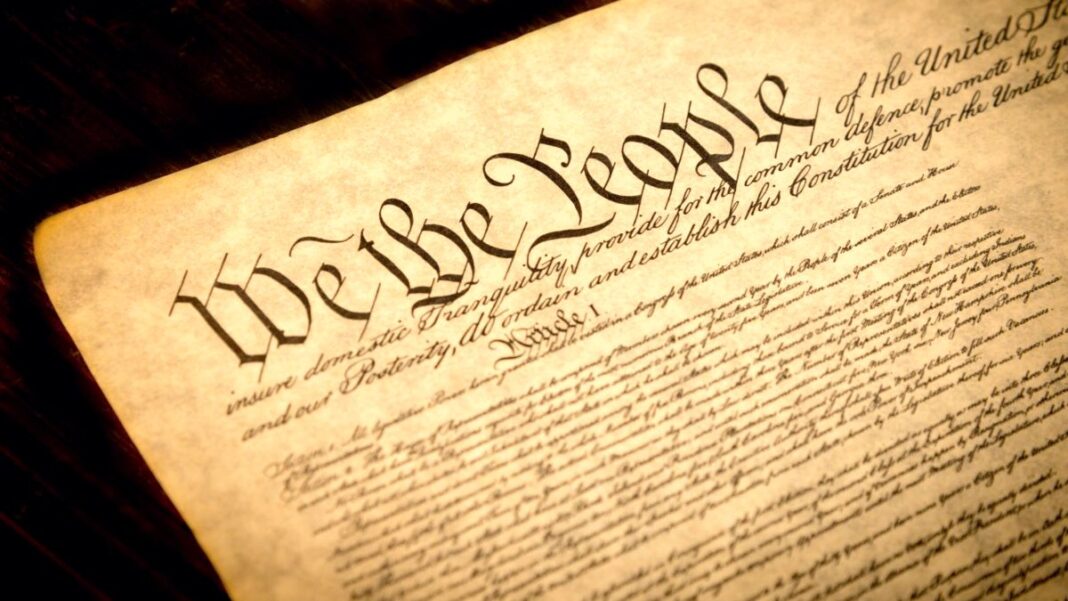Good governing rules were certainly created to be obeyed and enforced. One might say that a bright young fellow named Alexander Cartwright in the year 1848 first published in print a constitution of sorts for the original manual of rules for the official game of baseball, which comprised the way a game of baseball would be played, the number of bases, the distances of the bases apart from each other, the distance of the of the pitcher’s mound from home plate, the number of outs for each inning, the definition of a foul ball, the number of strikes for an out, and the number of balls necessary to walk a batter. These basic rules have been ritually followed and have not been changed since they were officially accepted or ratified by the first professional baseball league during the mid-19th century. If the rules for baseball were properly accepted then and they worked efficiently in the making of the conduct for a baseball game, why would anyone want to change them over time? Doing so would, in effect, create essentially another game, certainly not the game of baseball.
Rules have always been important in the determination of what was, and is, good and right and, of course, what is conversely evil and wrong in the course of human society. Law has been established over the centuries along with the progress of human conduct based upon those rules that men and women of good will have formulated and practiced, just like Alexander Cartwright did when he sat down one day and put together one good system for playing the game of baseball, which has lasted a very long time. Without obedience to laws and rules, humankind cannot engage in the game of society that determines the processes of government which ensure justice and tranquility.
Very similarly, from 1787 to 1789, seventy men of good will were appointed by the original American States, excluding Rhode Island, to assemble in Philadelphia for a Constitutional Convention in order to draft a written Constitution for a new republic, the United States of America. It was the purpose of these men to establish the rules that would practically define the purpose of the Constitution as set forth in its Preamble, “We the People of the United States, in order the form a more perfect union, establish justice, ensure domestic tranquility, provide for the common defense, promote the general welfare, and secure the blessings of Liberty to ourselves and our posterity, do ordain and establish this Constitution for the United States of America.” So, the formulation of the US Constitution by the 1787 Constitutional Convention was all about the establishment and ensuring of liberty for the extant and future People, or citizens, of the United States. Hence, the explicit rules established by the Convention and written into the seven articles of the US Constitution were intended to be maintained unto perpetuity, or forever, unless formally amended or changed by dire necessity through an amendment process contained in Article 5 of the Constitution. The inspired men who drafted the US Constitution, or the honored Framers, deliberately made the amendment process extremely complicated and difficult, so that evil men and women could not easily and openly use the amendment process to fraudulently connive the People out of their economic and governmental liberty.
The governmental, financial, and economic rules laid down in the US Constitution were intended to maintain the efficient operation of a federalist republic with the three branches of federal government, co-equal in federal power, the Legislative or law/rule making branch comprising a bicameral Congress composed up of a House of Representatives and a Senate defined by Article 1, the Executive branch or the federal enforcement branch is defined by Article 2 and is specifically and only comprised of one elected person, a President of the United States, and then there is the Judicial branch is defined by Article 3, comprised of a US Supreme Court and lesser federal courts created by acts of Congress. Each of these three branches of the federal government were originally tasked by the Framers with maintaining a system of checks and balances to ensure that no branch usurped its power and limitations illegally under the enumerated constraints of the US Constitution.
For approximately 121 years, from 1789 until around 1900, the rules of the US Constitution were respected, maintained, and enforced. Article 1 contained the enumerated powers, rules, laws, and processes by which Congress was to maintain efficient economic, financial, and governmental operation of the federal republic. Absolutely none of the financial powers or duties assigned by the Framers to the Legislative branch, or Congress, were transferable or delegable to any other branch or organization, but were only the function of Congress. This was especially true for the legislative duty expressed in Article 1, Section 8, Clause 6, “the Congress shall have the (exclusive) power to coin Money, to regulate the Value thereof, and of foreign Coin, and fix the standard of weights and Measures.”
In the years leading up to 1913, the US Constitution was, however, sorely violated by duplicitous congressional conspiracy and illegally changed in operation without the required use of the Article 5 amendment process in the creation of the Federal Reserve Act, giving a central international banking cartel the illegal power to coin US money and determine it value. Such was the beginning of the economic despair of the 20th Century American people.








